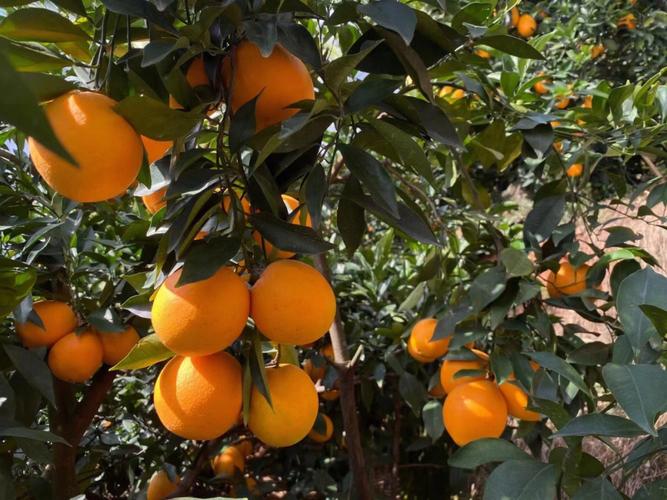
Te Grove Where My Hands and the Earth Share Secrets: A Navel Orange Story, Raw and Unscripted
Dawn breaks here like a quiet promise. Mist curls off the irrigation ditches, clinging to the leaves of our navel orange trees as if the sun itself is hesitant to disturb the peace. I stand at the edge of the grove, boots caked in last night’s rain, and breathe in the air—thick with the scent of damp soil, sun-warmed citrus, and the faint, sweet tang of fallen blossoms. This isn’t a place of billboards or branding. It’s a patch of land where my family has tended oranges for three generations, and where every fruit carries a story: of patience, of storms weathered, and of hands that cared enough to let things grow slow.
Grandpa’s Rule: “Oranges Need Room to Breathe”
My grandfather, Luis, planted our first saplings in 1962. He was a quiet man, a former cowboy who traded spurs for a shovel, convinced “trees have more sense than men.” His first lesson? “Don’t smother ’em.”
He hated rushing. When a late frost threatened the blooms, he didn’t panic. He lit smudge pots, yes, but mostly, he sat under the oldest tree (a scraggly thing he’d saved from a burned orchard), sipping coffee and muttering, “She’ll remember. Trees have good memories.” By May, the grove bloomed—plump, fragrant, like nature’s apology.
That tree still stands. Its trunk is wider than my torso now, its branches bowing low with fruit every winter. I still talk to it, just like Grandpa did. “Hold on, viejita,” I’ll say, brushing a leaf. “The sun’s not done with you yet.”
Work That Smells Like Home
Farming here isn’t about checklists. It’s about rhythms.
5:45 a.m.: I wake to the sound of my dog, Chuy, nudging my foot. He knows the drill: coffee first, then boots. I sip chicory coffee on the porch, watching fog lift off the fields, revealing rows of trees just starting to glow. Dew drips from leaves, sticky-sweet, and a mockingbird sings—a sound so familiar, it’s like a morning hug.
7:30 a.m.: Check-ups. I wander the rows, fingers brushing leaves—smooth, waxy, no aphids (ladybugs are on patrol). I note which young trees need water (only the babies; the old ones have roots deep enough to find it themselves). Last week, I found a nest of baby bluebirds in a low branch. I left it alone. “They’re part of the family,” I told Chuy, who yawned in agreement.
10:00 a.m.: Harvest. My niece, Sofia, and her friend, Luis, arrive with wicker baskets. Sofia, 14, moves slow, cradling each orange like a baby. “This one’s heavy,” she whispers, grinning. “Juicy, I bet.” Luis laughs, tossing a rogue leaf at her. “Focus, amiga. We’ve got 200 trees to do.”
Imperfections: The Best Part of the Story
Not every orange is Instagram-ready. Some have dents from branches, others are lopsided, their tops a little flat. For years, we’d toss them—or sell them cheap. Then Sofia, age 9, brought me one, its peel scuffed like an old map. “This one fought the storm!” she declared. “It’s brave!”
Brave, indeed. Now, we call them “naranjas con alma”—oranges with soul. They go to the food bank, where a single mom cries, “My kid eats these like candy—their ‘ugly’ oranges are the best.” They go to the elementary school, where kids paint them and call them “citrus superheroes.” And some stay right here, left for deer or squirrels—because even the “imperfect” ones deserve a feast.
What You’ll Taste: Sunlight, Soil, and Someone Who Cares
Bite into one of our oranges, and you’ll taste it first: a bright, tangy zing—like licking a lemon drop, but warmer, softer. Then, the sweetness unfolds, slow and rich, like honey steeped in summer. The juice runs, thick and golden, not watery. Peel it, and the skin comes away cleanly, leaving no bitter pith—just a faint, citrusy scent that lingers, like a memory of Grandpa’s old gloves.
But it’s more than taste. It’s the feel of dew on your boots at dawn. It’s Sofia’s giggle as she chases a butterfly. It’s Chuy’s tail thumping as he guards the crates. It’s the soil, fed by coffee grounds and ladybugs, giving back its best.
Come, Taste the Story (Or Let Us Bring It to You)
If you’re ever nearby, pull up a stool under the old oak. I’ll pour sweet tea, hand you a basket, and let you pick. I’ll show you Grandpa’s first tree—its trunk thick, its branches still heavy with fruit. Sofia will teach you to test ripeness by smell: “If it smells like sunshine, it’s ready.” And Luis? He’ll insist you try an “adventure orange.” “It’s the best kind,” he’ll say, grinning.
If you’re far, we’ll pack your order with straw and care—no plastic, no rush. These oranges aren’t perfect. They’re not mass-made. They’re grown by people who show up, day in and day out, for the land, for the fruit, and for anyone who believes food should taste like it’s rooted in love.

No reply content